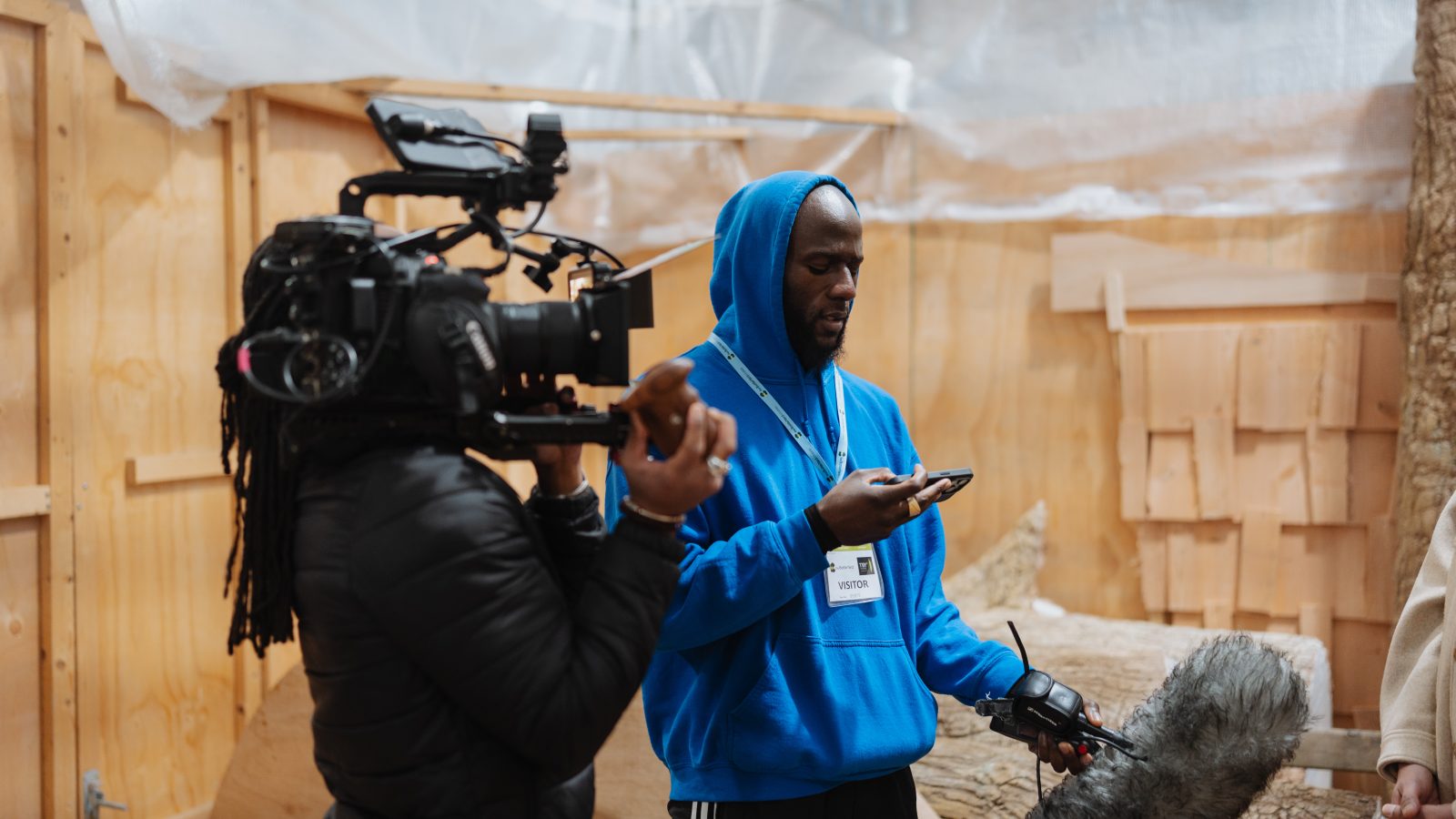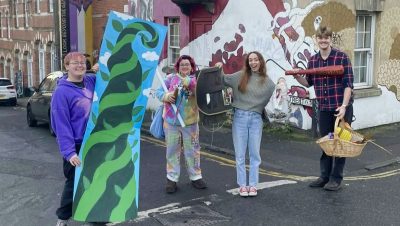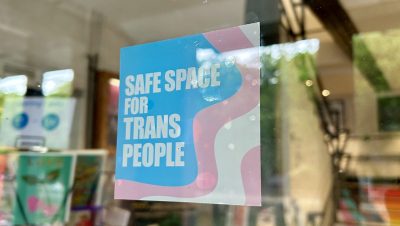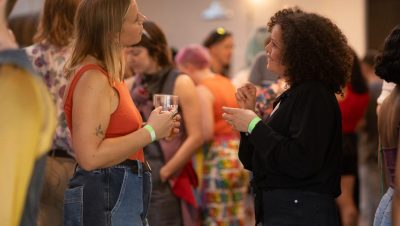Features / Film and TV
Underexposed: The missing reels of QPOC filmmakers
Bristol is an influential hub for arts, culture and diverse identities.
Despite this, significant disparities exist between white queer filmmakers and queer filmmakers of colour in Bristol’s film and TV industry.
Intersectionality within identity
Equality and diversity in hiring has always been an important issue.
is needed now More than ever
This has recently come to the forefront of conversation as a result the Trump administration forcing companies to remove employment policies protecting minority groups in business.
When the USA makes changes, knock-on effects tend to happen across the Atlantic.
In Bristol, concerns persist about unfair treatment of queer people of colour (QPOC) versus their white counterparts.
Travis Joseph is a Bristol-based edit assistant, who has been working primarily in TV for over a decade.
Travis told Bristol24/7 that people from under-represented groups are seemingly often the first to be made redundant or leave roles.
This can be due to challenging working conditions like institutional discrimination.
“Discrimination due to sexuality may be part of the problem. However, I think the mistreatment of racial minorities in the TV industry is a bigger issue,” said Travis.
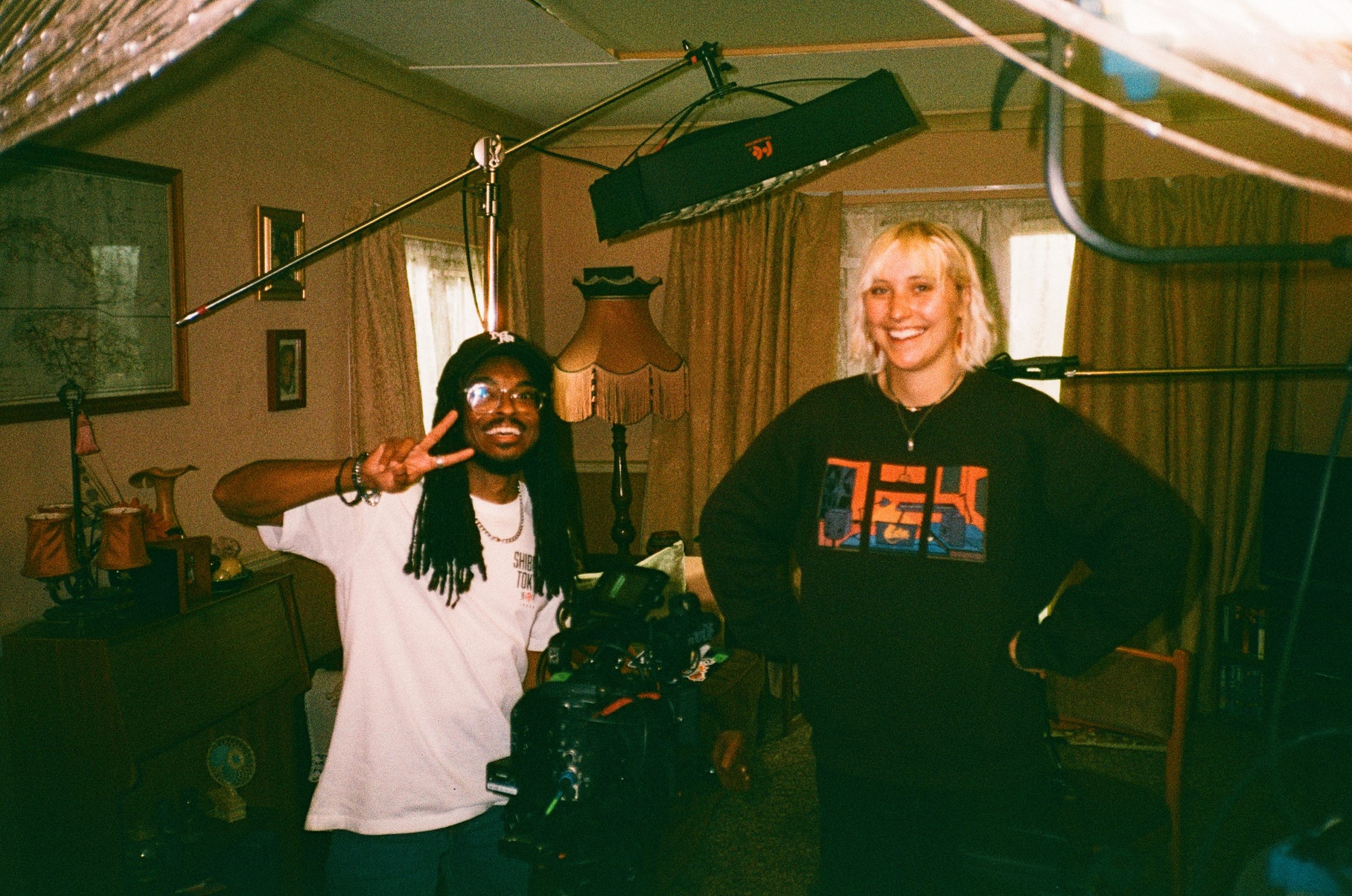
Latent Pictures is a production company dedicated to challenging disparities within the Film and TV industry – photo: Latent Pictures
Travis added: “A lot of the time people’s idea of a non-binary person, a gay person or a queer person is white. Regardless of time passing, Black people are used to being dehumanised. This occurs when people do not respect who we are within intersections.
“We are dismissed and sidelined because people see our race first.
“Studies reflect this and it’s what we experience. We’re not allowed to be both queer and Black. It’s exhausting. Racism is happening anyway, not being able to be yourself and be respected within that is also really damaging.”
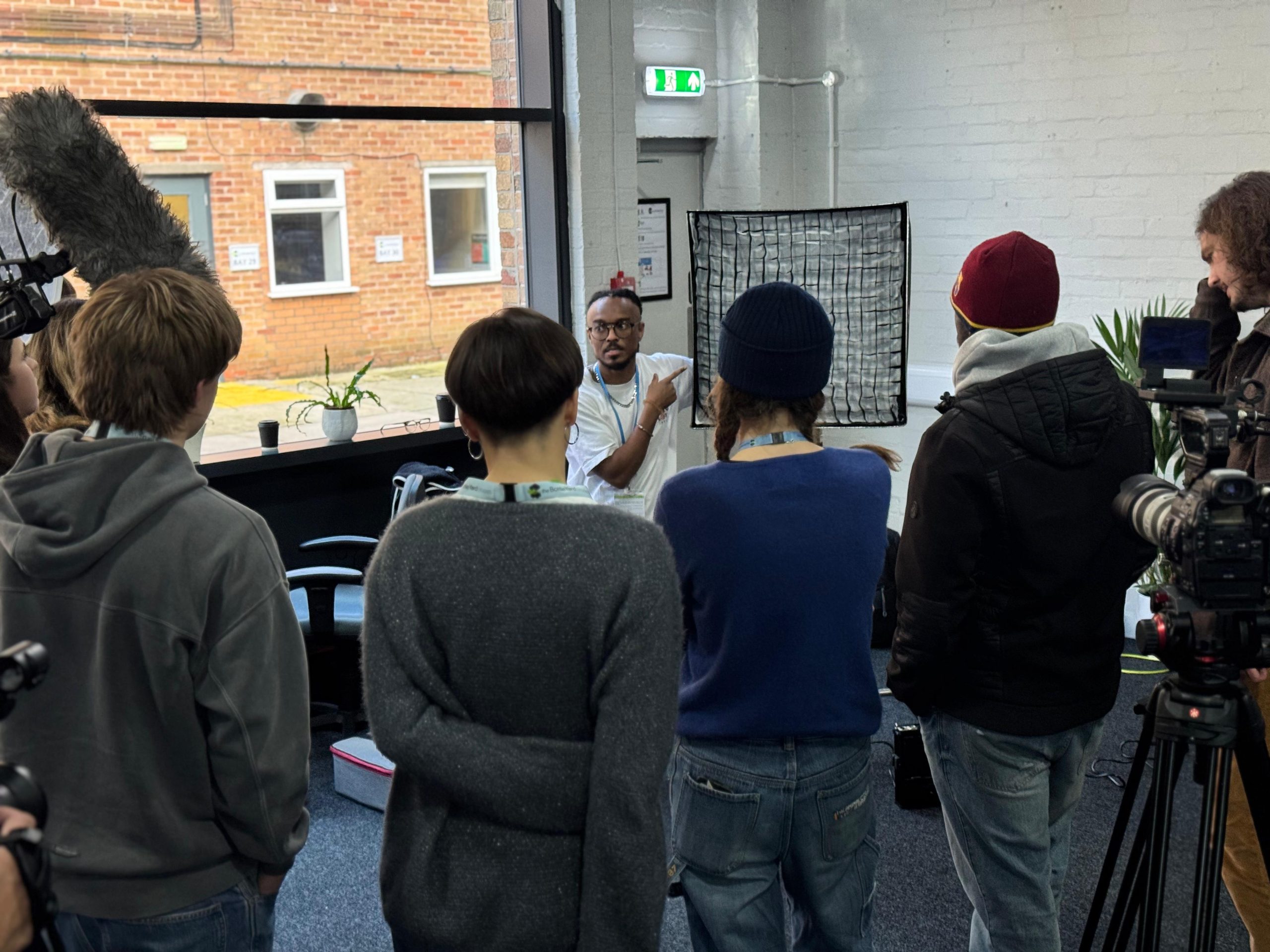
Ryan Francis – the founder and CEO of Latent Pictures – founded the production company to create paid opportunities for emerging talent and spotlight underrepresented voices – photo: Latent Pictures
Travis added: “Black people are dismissed and sidelined because of racism in the industry.
“People have a preconceived idea of who they are looking for when hiring people.
“The industry is dominated by white, middle-class workers.
“This makes it difficult for those outside this demographic to find opportunities. Most roles available to queer people of colour are short-term apprenticeships or lower-paid jobs. These often feel tokenistic.”
Lack of representation and support for QPOC
A lack of respect for queer people of colour’s identities can often include misusing pronouns or failing to provide gender inclusive spaces within the industry.
Travis used to work for a major broadcasting corporation in Bristol.
He explained: “There sadly wasn’t a support network in place to support trans or racially minoritised staff. This could have improved staff experiences for the better.” Continuing, they said that the lack of support network could cause mental distress, and real-world safety issues.
As an example, Travis said: “Not having inclusive policies affects everyone, not just under–represented groups. Mental distress can be caused by a lack of inclusive policies.
“Using staff members’ correct pronouns is important. When you’re with one group of colleagues who know you as one gender, then new people come in, and they start calling you another one, you then start feeling quite unsafe.”
Travis said that many queer people of colour within the industry have experienced performative allyship.
For example, companies will attend Pride and use queer people of colour for promotional images. They can then claim they have all-queer or all-female crews, providing a good outward look. Yet, these companies would then be unable to provide simple necessities such as gender-neutral toilets.
In their previous role, Travis was unsure on which toilet would be a safe space for them. “I remember going into work and avoiding using the toilets, because I was worried about the reaction I would get,” said Travis.
At the major broadcasting network Travis worked at, there was not the support they needed.
Therefore, alongside another person of colour, Travis created a group for trans and nonbinary staff. Queer people of colour consistently have to work more, establishing support groups and safe spaces. These groups and spaces can then be used as tokenistic examples of diversity by the company.
View this post on Instagram
Why is diverse representation in the film and TV industry important?
Travis explained that having different stories and diverse voices makes content more interesting.
“There needs to be recognition of how great content can be when you let different types of people create together. This isn’t happening right now, because they’re not allowing diverse groups of people to enter the industry,” said Travis.
Travis said that, in their experience, often the only representation in the industry is tokenisation. For example, they spoke about queer people of colour being hired on a short term, low-level contract such as apprenticeships or internships.
Travis continued that these roles are often oversubscribed by underrepresented groups, and are paid very little, or not at all.
The people in these roles face microaggressions or outright racism and when they report this, or call it out, there is a denial of racism and then they are labelled as “a problem”, causing the person to inevitably leave the organisation. Or they are able to stay and are made an example of.
Travis believes the system and industry were intended to support and centre middle-class white men and women.
Travis said that while representation and increased visibility are important, it is important to work with people who fully understand your identity.
Travis advised to choose people who support your growth in the industry: “The energy it takes to be the only person from a minority in a room is exhausting.”
Positive experiences and self-growth
Talking about positive experiences they had had in the TV industry, Travis said: “The positive experience didn’t come from the industry itself. I happened to meet another queer person of colour in the same company. We agreed our experience there was inadequate, and we decided to do something about it,” said Travis.
They added: “It’s taken me a very long time, but I’ve learned my own worth, and that I deserve better. A positive from the experience is self-growth.
“It was really bumpy though, awful at times, and I don’t want anyone else to have to go through that. I want young creatives entering the TV industry to realise they are not the problem. They deserve better, and they will excel.”
How can media companies and broadcasting corporations tackle this issue?
Latent Pictures is a production company dedicated to challenging disparities within the Film and TV industry by advocating for underrepresented filmmakers in the South West.
Prince Taylor, executive producer at Latent Pictures, said: “We prioritise working with people from low socioeconomic backgrounds. This creates a broader intersection of the world, and different lived experiences. We’re able to attract diverse talent.”
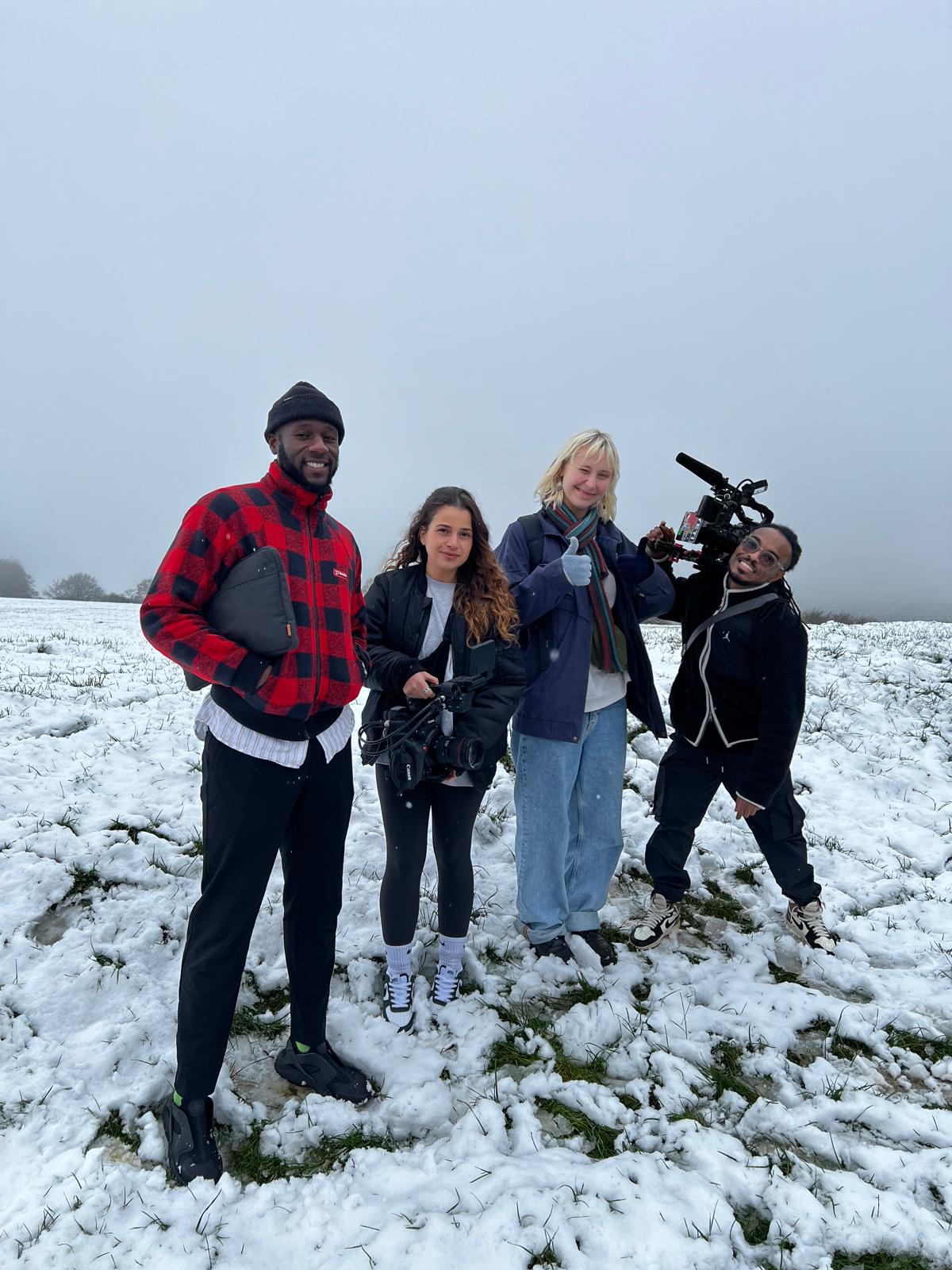
The team on set: Prince Taylor (left), Cicely Walmsley (centre right) and Ryan Francis (far right) – photo: Latent Pictures
One of the ways in which Latent Pictures is able to make sure they are inclusive and respectful is by continuous improvement of their EDI practices.
Prince told Bristol24/7 that the company carries out audits and reassesses inclusivity training as new information is made available.
Prince said: “It is important to remain adaptable. It’s important to understand that we may have got something right in May 2025. That doesn’t mean it will be correct or right in November 2025, let alone 2030. So, we try to be responsive.
“In our pre-production processes, we always introduce a conversation around access needs. We ask what reassurances people will need in order to collaborate with us or work with us. We then amend our templates to ensure that we’re meeting those needs.”
Cicely Walmsley, producer at Latent Pictures, added that groups from low socioeconomic backgrounds are less likely to be experienced in networking. Knowing how to sell yourself has become essential in the film and TV industry. “People who are privately educated and come from a higher socio-economic background are more likely to be able to network effectively,” said Cicely.
Cicely said that their most effective connections have come from being direct. Continuing, Cicely described a time when someone in their network didn’t feel safe giving their pronouns. Now Latent Pictures include pronouns on their call sheets, hoping this will normalise introducing people with their preferred pronouns. This is an issue that continues to be developed, as some people may not be comfortable giving their pronouns, so allowances have to be made in that respect as well.
Latent Pictures has been able to deliver training for their clients, and positively impact creatives within their network.
To avoid tokenistic inclusivity often seen in the TV and film industry, Cicely said they stay in contact with their clients. They work to create a relationship where clients feel they can contact Latent Pictures for advice.
Both Prince and Cicely said that remaining in conversation with the communities you are representing is the best path for companies pursuing inclusivity.
Taylor also stressed the need to have representation at every level.
“To avoid tokenism, you require representation at every level of operation. Without that visibility, then people’s ceilings are written into their future already because they can’t see themselves in spaces of executive decision-making success,” said Taylor.
When asked how they have moved forward from the “tick-box” inclusivity often seen in the industry, Walmsley said: “Something that we do is we very much stay in contact with the people we’re working with.
“We work on creating this relationship with the people we’re working with so they feel they can call us and chat to us if they have an issue later down the line. And we can keep a track of their career and make sure they’re staying in the industry because that’s the key thing to stop it from being a tick-box.”
Both Walmsley and Taylor agreed that allyship and advocacy require investment in talented individuals from different communities. If they’re serious about building a more inclusive workforce, companies should take the time to create safeguarding frameworks and invest “real” money in people’s futures.
Main photo: Latent Pictures
 Our newsletters emailed directly to you
Our newsletters emailed directly to you